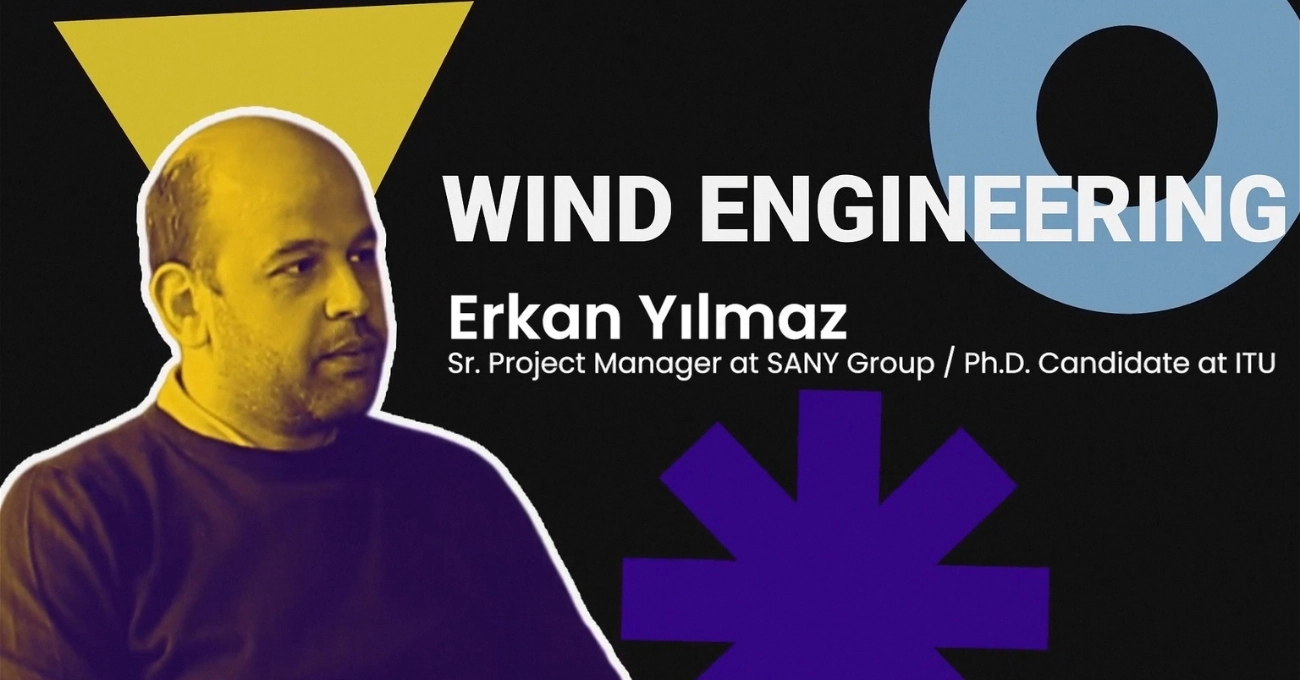A Conversation with Berke on Data Visualization and Weather Intelligence
Gökmen: Welcome, Berke!
Berke: Thank you, glad to be here.
Gökmen: How are you, what's up?
Berke: I'm good. How about you?
Gökmen: Thanks, everything is fine. Who is Berke? Let's start from there. We are here with you today; let's get to know you a bit. After that, we can talk about what Berke does at Buluttan, how his path intersected, and how he sees this field. First of all, who is Berke?
Berke: Berke comes from the discipline of meteorological engineering. At Buluttan, I mostly work on data visualization.
Gökmen: What do you visualize, for example?
Berke: I visualize various data to make them more understandable. For example, lightning data, wind data, I visualize things like that.
Gökmen: How did your path intersect with Buluttan? You adapted very quickly, started contributing right away, both to yourself and the team. How did it happen, how did we come together?
Berke: Our paths intersected on LinkedIn, actually. I met Güven there, and the process led us here.
Gökmen: When your paths intersect with Güven, things progress quickly, right? Here, we are primarily an engineering-focused team. Everyone's technical capacity and ability are quite high. Working with this team has many advantages for an engineer, both positive and negative perhaps, but there is a team that constantly produces, supports each other, not only analytically but also sometimes helping each other in different areas of meteorology. How do you see yourself within this team, Berke? In which directions would you like to go in the coming years, both at Buluttan and in weather intelligence? Shall we touch upon that?
Berke: Of course, let's talk about it. The team I am in is indeed beautiful and a team that has contributed a lot to me personally. Their dynamic nature and their young age are quite advantageous, I think. Let's talk about weather intelligence. Weather intelligence has already started this process and is changing quite a bit with both weather modeling and statistical modeling, I think. I believe we can achieve more accurate and better results.
Gökmen: In fact, in the geographical area we are in, extreme weather events have increased by 50% in the last 5 years. I'm talking about the number of events in this region. And Turkey's share in this region, which we call East, Middle East, and Africa, has reached around 40%. Although we are in a much smaller geographical area, this region, considering it, Turkey is a place where extreme weather events are seen due to the climatic impact of its geography. We are working on this a lot, as you know. Here, every day, with earlier and more accurate warnings, we increase both life and property safety and operational efficiency. So, generally speaking, how do you see meteorology? It started with a department established in the 1950s at ITU in Turkey; you may not know the entire 70-year history, you haven't witnessed it all. You observed an important part of the development both in Buluttan and in meteorological engineering. How do you evaluate both Buluttan and meteorological engineering?
Berke: Meteorological engineering's value might not be apparent at first, but especially nowadays, we realize that it actually affects many areas and is related to many things, so it is very important. And at Buluttan, we are already trying to create awareness about this.
Gökmen: Not only awareness, but actually, we are trying to explain what weather intelligence can do in different sectors. Afterwards, companies and sectors that use weather as an instrument can suddenly stand out or those that do not use it can lag behind. Every day, we deal with one of the four basic elements: fire, water, earth, and air. Probably atmospheric sciences will become a bit stronger than it has been until now, and the influence of statistical science and statistical models will probably become more prominent, don't you think? Due to the increasing data, increasing processing power, cheaper servers, and so on.
Berke: I think it will have a significant impact on this part, as you said. As I mentioned earlier, the weather modeling part is different from physical modeling, and statistical modeling is different. I think these two will merge in the coming years and contribute to each other.
Gökmen: So, what would you like to say to Güven from here?
Berke: I want to thank Güven for introducing me to Buluttan.
Gökmen: Alright. We also send our thanks and love to Güven from here.






